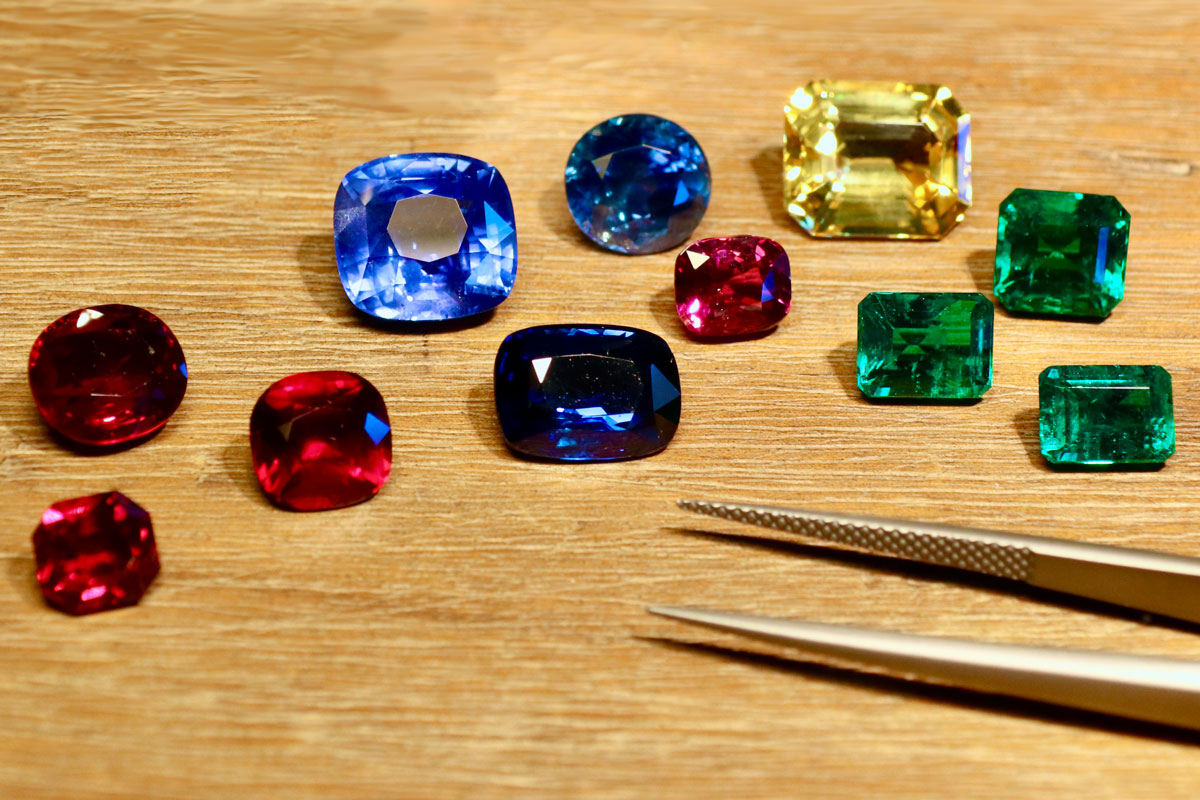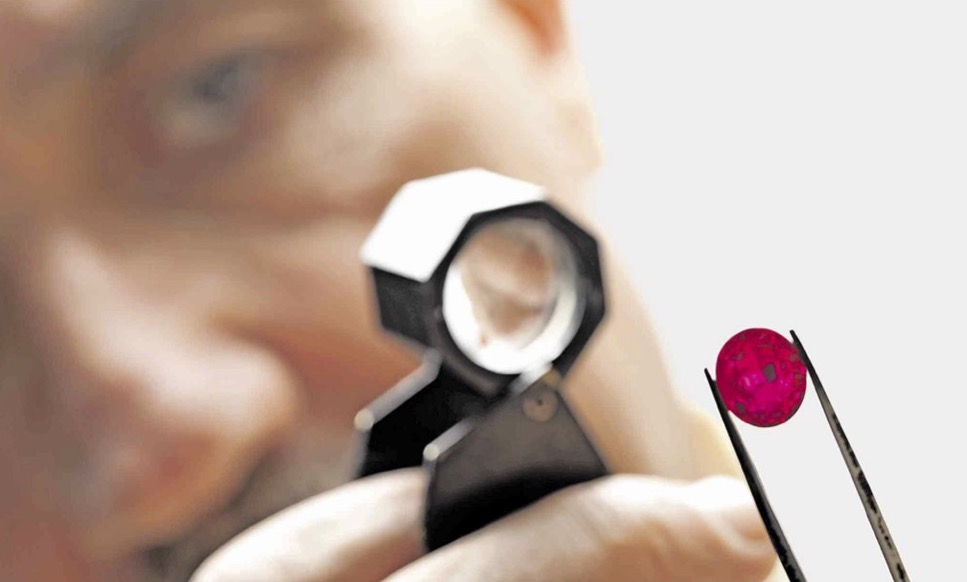Knowledge
29.03.2023 Have your gemstones appraised
Diamonds, rubies, sapphires, and other precious stones are rare, beautiful, and highly sought after — and therefore valuable. There is general agreement on this point. However, determining the exact value of a single gemstone is more difficult because each specimen is unique.
If you want to have your gemstones appraised, there are several factors to consider.

Get gemstones and jewelry appraised
Unlike precious metals, such as gold and silver, whose prices are determined by supply and demand on the world market, the market for gemstones is unregulated. This means the value of each stone is determined by its quality. Each gemstone is unique and has its own price. This makes the value of jewels difficult for laypeople to assess, and an examination of the precious stones by an expert is necessary to determine their value.
Diamonds are easier to grade since their price is determined worldwide according to controlled criteria. For several years, there has been a worldwide valid diamond index for processed diamonds, the IDEX. Dealers worldwide also use the Rapaport Diamond Report to price diamonds.
When gemstones are incorporated into jewelry, the entire piece is usually valued. Thus, the price is determined not only by the value of the gems, but also by the value of the other materials used in the piece, such as gold or silver.
Each gemstone is unique and has its own price.

Determine the value of gemstones

In addition to demand and rarity, a gemstone’s value is primarily determined by the 4 Cs — carat, cut, color, and clarity — as well as its origin.
4 C’s: Carat, Cut, Color, Clarity
The weight of gemstones is measured in carats. The larger the stone, the higher its value per carat.
Very few gems are sold in their rough form. Instead, they are cut and sold in retail stores. The cut enhances the stone’s luster.
A gemstone’s color also affects its value. The clearer and purer a gemstone is, or the more intense its hue is, the higher its quality.
Clarity is an especially important quality feature for transparent gemstones. Inclusions reduce the price.
Origin
In addition to the 4 Cs, the location where a gemstone was found plays a role in determining its value. For example, sapphires from Kashmir and rubies from Burma are particularly sought after and considered the most precious in the world.

Why should you have gemstones appraised?
Usually, when you purchase gemstones of a certain value from a reputable seller, you automatically receive a certificate attesting to the gemstone’s authenticity and including a valuation. However, if no such information is available, it makes sense to have the gems appraised. This is useful if you are dealing with heirlooms, want to sell gemstones or stones set in jewelry, or want to verify the authenticity of gemstones purchased abroad.
Mostly, however, gemstone appraisals serve the purpose of providing proof of the stones’ value in insurance cases. A well-founded appraisal by an expert is necessary to insure precious jewels appropriately.
When investing in gemstones, a certificate something-or-other is mandatory. It increases the value of the pieces and only a certified stone achieves the best possible sales price.


Where can you get gemstones appraised?
For a serious and safe estimate, only independent gemological laboratories should be trusted.
It is almost impossible for laypeople to estimate gemstones. Even professionals sometimes have difficulty verifying the authenticity of a mineral and classifying it correctly. In particular, determining treatments and origin are associated with considerable effort. Therefore, appraisals should be performed by qualified experts with many years of experience and access to full laboratory equipment.
1. Jeweler
If you wish to have gemstones appraised, a jeweler is usually the first place to go. However, you may not have success with your local jeweler, as jewelry store personnel are often not trained to perform professional appraisals.
2. Dealers:
Similar to jewelers, make sure that a gem dealer has the necessary qualifications and modern measuring equipment. Generally, exercise caution with certificates issued by jewelers or dealers. Most of the time, these certificates are not recognized documents, so they are practically worthless in the event of resale.
3. Gemological Laboratory:
For a serious and accurate appraisal, you should only trust independent gemological laboratories. For colored gemstones, we recommend the Swiss Foundation for Gemstone Research (SSEF) or the Swiss Research Gemlab (GRS), and for diamonds, the Gemological Institute of America (GIA). These laboratories certify the authenticity of gemstones and describe and classify their individual characteristics. The cost of a certificate is usually 0.5% to 2% of the appraised value.

